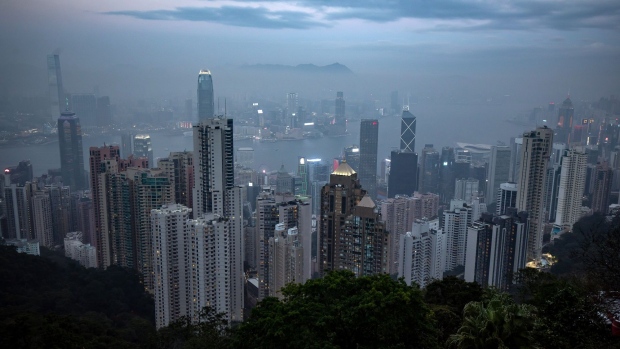Jan 30, 2023
Hong Kong Spends $3.3 Billion on Temporary Homes to Ease Crisis
, Bloomberg News

(Bloomberg) -- Hong Kong plans to spend about HK$26 billion ($3.3 billion) on temporary apartments to help reduce the wait times for public housing in one of the world’s most expensive real estate markets.
The government has picked eight land plots to build about 30,000 units of so-called light public housing over the next five years, said Secretary for Housing Winnie Ho. The projects will feature modular construction that builds the units elsewhere before assembling on site to speed up the process. The units will be between 13 square meters (140 square feet) and 31 square meters, slightly smaller than traditional public housing.
“This is a very important social project, the value of light public housing is to give people an option to move out of very poor living conditions while they are still waiting for public rental housing,” Ho said as the government unveiled a show flat Monday. She didn’t say how long the projects will last.
Hong Kong aims to cut the waiting period for public housing to 4.5 years from 5.6 years with the initiative. The government built about 69,000 traditional public rental apartments in the five years ended 2022.
Hong Kong has one of the world’s most expensive property markets where the less privileged are priced out of decent housing, leaving government rentals as the best option for them. The waiting time for public housing has been rising in recent years, despite pressure from the Chinese government to provide an affordable living environment for residents.
City Chief Executive John Lee first introduced the idea of light public housing in his maiden policy address last year as the solution to offer more cheap homes to satisfy the outsized demand.
The proposal has raised concerns about its cost-effectiveness given the temporary nature. It’s also not clear whether the initiative will accelerate the process for public housing applicants since construction takes up to five years, according to Liber Research Community, an independent think tank.
The government has rolled out a similar initiative called transitional housing that tapped private developers for their land and commissioned non-government organizations to operate the program.
©2023 Bloomberg L.P.








